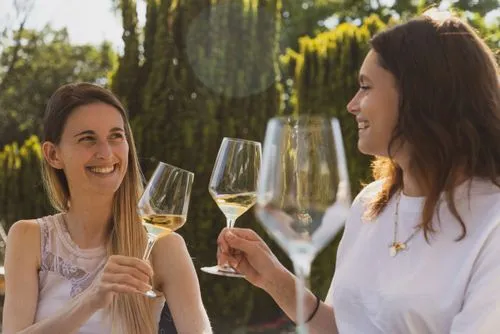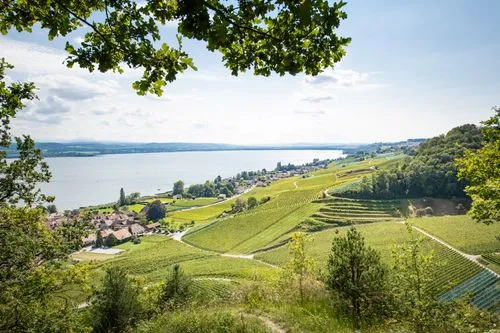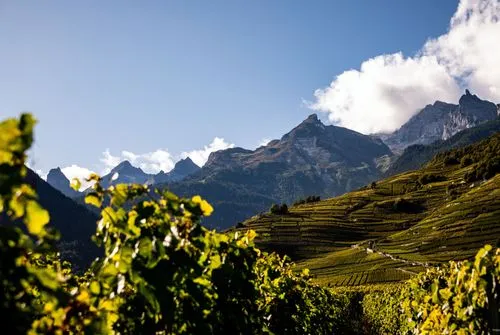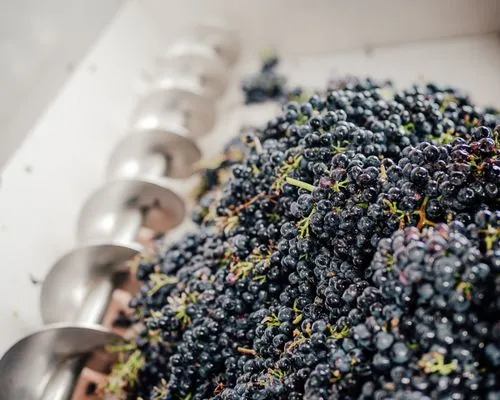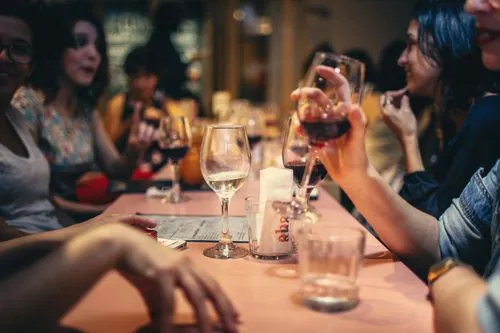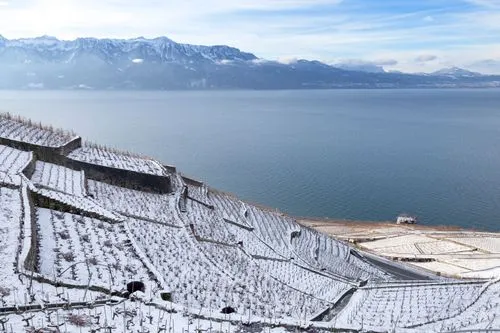Viticulture in Schaffhausen: "The cool sites could become the best"
Pinot Noir, also known as Blauburgunder, is the most widely cultivated grape variety in Switzerland. In Schaffhausen, the entire wine region, Blauburgunderland, is named after the grape.
Stephan Keller is managing director of the Rötiberg winery in Wilchingen. He talks about the quality of Swiss wine and the threat to the main grape variety in his region.
Stephan Keller, when was the last time you drank foreign wine?
About a month ago. I'm interested in what the surrounding countries are producing and how they are developing. I also have colleagues in Rioja and Barolo with whom I am in contact and whose wines I enjoy tasting.
How do you convince your customers to buy Swiss wine?
Above all with regionality. We produce all our wines in the region. The grapes travel no more than four kilometres on their way to the cellar. What's more, Switzerland has made great strides in terms of quality in recent years and is in no way inferior to foreign wines.
How does that show?
Swiss wines used to keep for three or four years. Today's wines, on the other hand, can still be enjoyed in 15 years' time. Yield restrictions, the climate and more careful cellar work have contributed to the increased quality of Swiss wines.
To what extent has the climate contributed to this?
Thirty years ago, the grapes had an average Oechsle level (sugar content in the must) of 85 at harvest. People tried to let the grapes hang until they reached 90. Today it is already 100 Oechsle on the first day of the harvest. So much so that we have to leave more leaves hanging so that the grapes get shade. The cool sites today could become the best in the future. The sunny sites, on the other hand, could get too much heat for the Pinot Noir.
Does that worry you?
I'm not the type to worry too much. I'd rather think about what we can change. Here in Schaffhausen, we grow 70 per cent Pinot Noir - a tricky variety when it comes to the sun. If there is too much sun, we get too much alcohol in the wine.
How do you meet this challenge?
One of the things we have to do with Pinot Noir is to create shade by growing more leaves. In recent years, however, we have also replaced three hectares of Pinot Noir with Merlot, Cabernet Sauvignon, Cabernet Franc, Zweigelt and Tempranillo. The newly planted varieties can cope with more sun.
Does the Rötiberg Kellerei produce its wines conventionally or organically?
We have been producing organically in accordance with Bio Suisse guidelines on one hectare for two years, the other 29 hectares are conventional. Basically, we only use plant protection when we have to. We try to take a proportionate approach and can thus save on spraying agents.
Would you like to produce more organic wine in the future?
For me, organic is not always better. You have to do a lot more plant protection and visit the vines more often. As a result, CO2 emissions and soil pollution are higher.
Why does Swiss wine often cost more than wine from abroad?
Materials such as bottles and corks are cheaper in the EU than here. The same goes for machinery and labour. Nevertheless, our Swiss wine prices are competitive with foreign wines - from cheap supermarket wines to inexpensive wines from wineries and high-priced wines.
Finally: What is your favourite grape variety?
Pinot Noir, of course! (laughs) It's a demanding variety, but at the same time very delicate. The terroir really comes into its own with Pinot Noir, and it is possible to create many styles of wine from it. And it's exciting to open and savour a bottle of Pinot Noir after 15 years of ageing.
What is your favourite wine, and what do you like to drink it with?
It's the Pinot Noir Rötiberg Reserve, a single-vineyard wine from a south-facing site where the sun shines from morning to night. The yield in the vines is reduced to 600 grams per square metre, the wine is matured in barrels for two and a half years and bottled unfiltered. My favourite way to drink it is with a piece of grilled meat.
Pretium
Related Articles
All the news about Swiss wines and exclusive reports.
To visit our site, you must be of legal drinking age in your country of residence.
